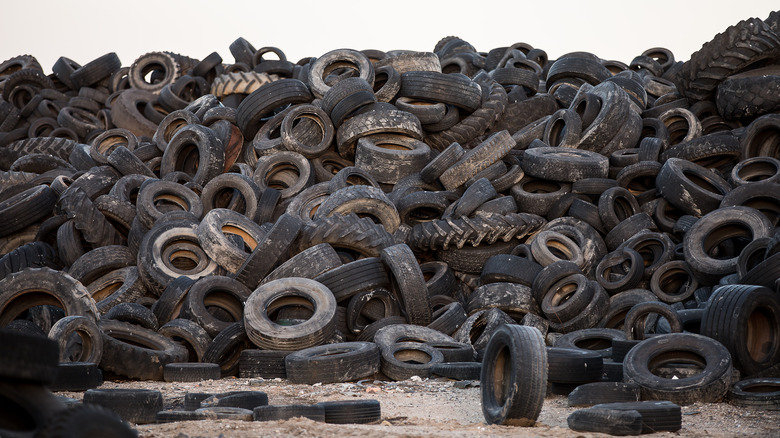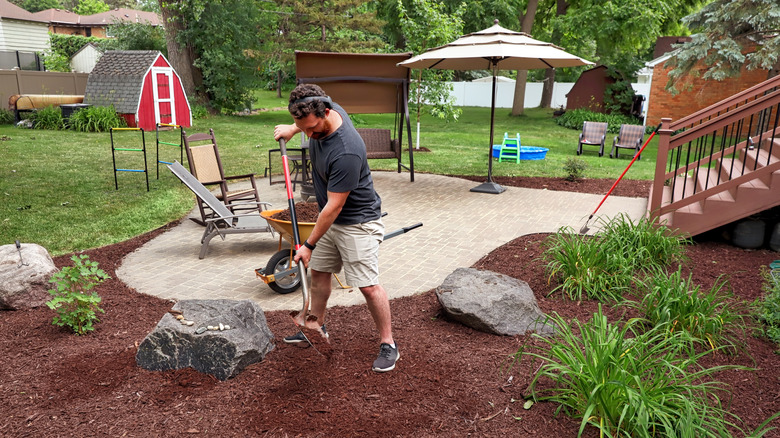YouTube
We all adore that glorious feeling of standing in our lush, vibrant gardens and reaping the fruits of our labor — quite literally, for some. And who doesn’t love finding easier ways to keep their little green oasis thriving? That’s where mulching comes in. A time-honored gardening practice, mulching helps conserve water, suppresses weed growth, prevents erosion, and improves soil health. A favorite option for many gardeners is rubber mulch, a relatively new player in the game. But before you rush out to buy some, it’s worth taking a moment to consider if it’s the best type of mulch for your garden.
Rubber mulch is typically made from recycled tires. And while repurposing old tires might seem like a good thing, it has several significant drawbacks that can’t be ignored. Unlike organic mulches like wood chips, straw, or compost, rubber mulch takes a long time to break down and doesn’t enrich the soil with organic matter. This absence of nutrients can lead to poorer soil quality over time, which is not ideal if you want healthy plants.
Environmental and safety considerations

Besides the lack of nutrients in rubber mulch, there are also concerns about the chemical compounds it contains. As the rubber breaks down over time, it can release harmful heavy metals like zinc, aluminum, chromium, and other toxic substances. This can be detrimental to the health of your plants, the friendly critters in your garden, and even local waterways.
Rubber mulch can also present a massive fire hazard, particularly if it is placed near a flame or heat source. In a Consumer Reports test, it was shown to catch fire faster and burn hotter than wood mulch. Moreover, it’s known to emit an intense rubbery smell when exposed to heat in places where summer gets extremely hot. It’s also non-biodegradable. Once in your garden, it’s there for the long haul. While this can seem like a plus initially, it can be problematic when you want to change your garden layout or remove the mulch, as the rubber bits can be difficult to separate from the soil. This is why gardeners are advised to use landscaping fabric to make it more manageable. That said, removing it will contribute to non-biodegradable waste, which isn’t a nod in the right direction for eco-conscious gardening.
More reasons to not use rubber mulch

Are you seeking a mulch solution for your trees? Rubber is probably one to avoid since heated rubber can comprise a tree’s roots and trunk while making it susceptible to fungal growth. It has also been found that female Asian cockroaches and ones in the nymphal stage (pre-adulthood) prefer rubber mulch over organic varieties. So you should avoid using it in your garden if you already have a roach problem at home. Then there’s the cost of rubber mulch, which tends to be higher than that of organic alternatives (some of which you can even make for free). The reason for its higher price tag is the processing rubber tires need to undergo to be made into usable gardening mulch. That said, organic options will have to be replaced far more often.
Fortunately, gardeners have a plethora of options at their disposal. Natural mulches such as wood chips, straw, and compost provide a pleasing aesthetic and tangible benefits for a healthy garden. So, while using rubber may appeal to some, its drawbacks warrant careful consideration. As such, embracing natural, organic alternatives may be the best way to go.